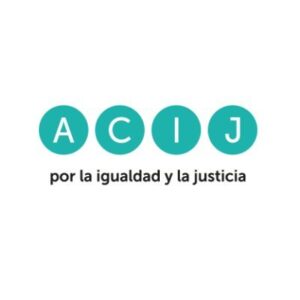Since the inauguration of the new national government in 2023, Argentina entered a new phase of austerity, guided by the priority goal of achieving a fiscal surplus. This policy entailed the deepest reduction in public spending since the 2001 crisis, marked by a sharp defunding of social programs along with a significant decline in transfers to subnational states.
Since December 2023, drastic cuts have been made to budget lines with high subnational impact—such as public works and education—shifting increasing responsibilities onto provincial and municipal governments. This not only threatens to deepen territorial inequalities but has also strained federal financing agreements, highlighting the fragility of Argentina’s fiscal architecture in the face of drastic changes in national spending. As a result, provinces face serious difficulties in defining their own budgets and ensuring the provision of basic rights such as health, education, housing, and care, among others.
In this context, the project proposes an interdisciplinary workshop aimed at debating the role of national fiscal policy in subnational accounts, with a particular focus on public spending and its distributive consequences.
The objective is to analyze the implications of this process and jointly explore how subnational economies can position themselves in the face of this reorganization of national fiscal policy in order to protect and guarantee equitable access to public goods and services.
Topics of interest and key dates
We invite academics, public administration officials, and civil society organizations to submit proposals that contribute
Since the inauguration of the new national government in 2023, Argentina entered a new phase of austerity, guided by the priority goal of achieving a fiscal surplus. This policy entailed the deepest reduction in public spending since the 2001 crisis, marked by a sharp defunding of social programs along with a significant decline in transfers to subnational states.
Since December 2023, drastic cuts have been made to budget lines with high subnational impact—such as public works and education—shifting increasing responsibilities onto provincial and municipal governments. This not only threatens to deepen territorial inequalities but has also strained federal financing agreements, highlighting the fragility of Argentina’s fiscal architecture in the face of drastic changes in national spending. As a result, provinces face serious difficulties in defining their own budgets and ensuring the provision of basic rights such as health, education, housing, and care, among others.
In this context, the project proposes an interdisciplinary workshop aimed at debating the role of national fiscal policy in subnational accounts, with a particular focus on public spending and its distributive consequences.
The objective is to analyze the implications of this process and jointly explore how subnational economies can position themselves in the face of this reorganization of national fiscal policy in order to protect and guarantee equitable access to public goods and services.
Topics of interest and key dates
We invite academics, public administration officials, and civil society organizations to submit proposals that contribute to the following questions:
-
How does the reduction of discretionary transfers affect the ability of provinces to sustain essential services?
-
What strategies are provincial and local governments developing to cope with the decline in national funding?
-
What alternatives can be envisioned for the future to limit the regressive effects of adjustment and strengthen territorial equity?
Extended abstract proposals (500–1000 words) will be accepted until 13 October 2025.
Proposals will be reviewed by a committee of specialists, evaluating the quality of the submission, its contribution to the workshop theme, and the track record of the applicants.
Special consideration will be given to proposals submitted by early-stage researchers from institutions based in the provinces.
Proposals must be sent by email, along with the applicants’ CVs, to: info@acij.org.ar
Funding
A limited fund will be available to support in-person participation of selected presenters, including travel and/or accommodation.
Target audience and workshop format
The workshop seeks to bring together specialists in budgetary analysis with a human rights perspective from different provinces, coming both from academia and civil society organizations. Legislators and their advisors will also be invited.
The activity will take place in a one-day session:
-
The first half will focus on presentations on the main changes identified in provincial budget execution and their impact on rights protection.
-
The second half will be devoted to discussing proposals for reforming the federal revenue-sharing system and its role in a potential fiscal reform.
Date and venue
The workshop will be held in Buenos Aires (Capital Federal) on Friday, 12 December 2025.




